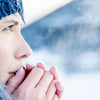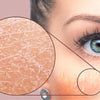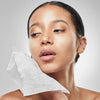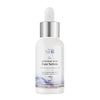Acne: Types, Causes & Care
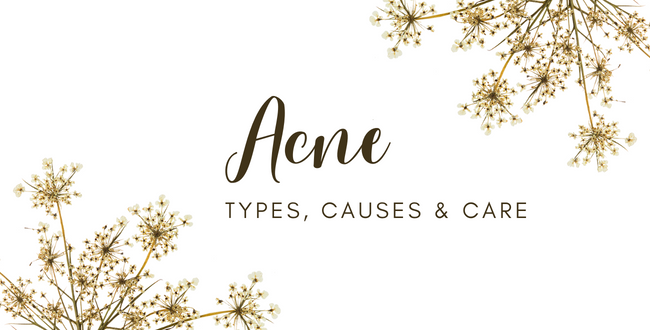
If the world had to unite against one skincare concern, it would definitely be acne. While acne is mostly found on the face, it also can develop on other parts of your body, including your back, chest, and neck. But what causes it? There are a lot of myths around it. Chocolate and greasy foods are often blamed, but there is little evidence that foods have much effect on this skin concern. On one hand, it is said that dirty skin can cause acne. But on the other hand, blackheads and pimples, which are types of acne, aren’t caused by dirt. On the other hand stress doesn't cause acne. But stress can make it worse.
To banish all this confusion around this little but also huge skin concern, we are here with an Acne Guide that will answer most of your questions. Read till the end!
Acne is one of the most common skin conditions in the world, affecting an estimated 85% of young adults at some point in their lives, according to Global Burden of Disease (GBD). If you are yet to become a young adult or have already passed that stage, don’t rest assured. It's not just for teenagers: acne can affect anyone of any age, race, or gender.
So, What Causes Acne?
Acne is caused by excess oil production on your skin, which causes bacteria to grow under your pores and clog them up with dead skin cells and oils from your sebum. This blockage keeps moisture from getting to your pores where it needs to be so that bacteria doesn't get out of control—and it can lead to painful breakouts!
Acne can affect anyone but is more common among teens and young adults. It may also be triggered by hormones, stress, diet, or genetics. It may be less apparent during early adulthood because hormones are changing and hair growth slows down. Acne is most commonly found on the face, but it can also occur on other parts of your body.
Types of Acne

Acne does not come in a certain shape or size. So, no one definition of acne fits all. Here is a list of different kinds of acne that are commonly found even on the prettiest of faces.
Blackheads
Blackheads are open comedones, which means they're clogged pores. They're most often found on the nose and chin, especially if you have oily skin.
Blackheads form when your skin produces too much sebum (oil) in its pores. This excess sebum gets mixed with dead cells that were shed by other tissues in your body, as well as bacteria that live there. This results in a black cap, more popularly known as a blackhead.
Whiteheads
Whiteheads are clogged pores that are not infected. They’re usually white, rather than yellow or black, and they have a head but no stalk (that would be a blackhead). You can squeeze out whiteheads by pressing them with your fingers or a tissue; if you don't get all of it at once, just leave it alone until it comes off on its own.
They're not to be confused with milia: these are small bumps caused by skin barrier breakdowns such as rosacea or eczema; they're not acne per se.
Papules
Papules are tiny red bumps. They're usually painful to the touch and may be accompanied by a few pimples. Papules are the least severe type of acne and are easy to treat.
Pustules
Pustules are a type of acne lesion that contains pus-filled bumps. They're usually red or white and can be painful and may cause scarring.
Acne pustules can appear on any part of the body but are most common on the face, chest, and back in young people between the ages of 10 to 25 years old. In adults over 25 years old, they're most often found on the neck, chest, and back areas.
Nodules
Nodules are solid, raised bumps that are larger and deeper than papules. They might cause pain as well as scarring.
Cysts
Cysts are a type of acne lesion that can occur deep in your skin. They're often painful and can cause scarring, but they're also treatable with antibiotics.
Cystic acne lesions tend to be deeper than typical papules or pustules, so they may not always be visible on your face (or even when you look at yourself in the mirror). If this sounds like something that might be happening to you, please talk with your doctor about it—they need to know what's going on so they can help!
Acne Care Tips
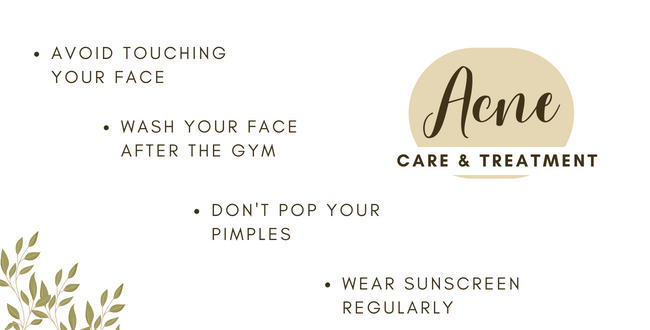
Your hands contain much more germs that are visible to your eyes. So always keep a distance between your hands and your face.
Wash your face twice a day with water and mild soap or cleanser, or try an acne treatment product like benzoyl peroxide or salicylic acid gel pads (you can buy these at any pharmacy).
Wear sunscreen daily to keep skin from becoming too dry or irritated by sunlight rays, which can make skin more prone to breakouts in the future if they're not treated early on!
Causes of Acne

Ever wondered what causes these outbreaks to appear on your face that too right before a special occasion? The reasons listed below might answer your question.
Pressure on Your Skin
You may be wondering why pressure on your skin can cause acne.
For starters, wearing tight clothing—like a shirt or jacket—can create pressure on the skin as you move around. Or, if you're carrying around more than one bag at once and not paying attention to how much weight it's putting on your body, this could also contribute to chafing at certain spots. Another way people can put pressure on themselves without realizing it involves sleeping on their backs instead of lying flat on one side like we should do every night before going deep into dreamland!
This causes friction and causes tears on the skin. This makes your skin a lot more prone to acne.
Too much sun
Sunlight can cause acne. Period!
UV rays are a form of radiation that causes skin damage, and this cumulative effect of UV rays is what leads to wrinkles, skin cancer, and premature aging. The best way to protect yourself from the sun's harmful effects? Use sunscreen!
Pimple popping
Pimple popping is not the right way to treat acne.
Instead of squeezing or picking at their head (which can damage the follicle), try using products like benzoyl peroxide lotion or topical retinoids instead; both contain antibacterial agents that help prevent germs from spreading throughout your body by killing off bacteria.
Diet
You can control the acne-causing foods you eat by eating a diet that's high in antioxidants, omega-3 fatty acids, and zinc. A balanced diet will help your skin stay clear too.
Antioxidants: Antioxidants like vitamins C and E help fight free radicals in the body that cause damage to cells and DNA (the genetic material). Foods rich in antioxidants include blueberries, blackberries, strawberries and cranberries, and green leafy vegetables.
Stress and Anxiety
Stress and anxiety can cause acne. Stress is a normal reaction to life, but if it gets out of control or lasts too long, it can lead to the following:
- Picking your skin
- Having more breakouts (including cysts)
- Sleeping poorly
Heredity
Acne can be passed from generation to generation. You can get stress tendencies, skin sensitivities, strong inflammatory responses passed on to you from your parents which can play a great role in resulting frequent outbreaks of acne.
Hormones
Hormones are a big part of acne. Many hormones can cause acne in women, men, and teenagers. The most common hormonal change that causes acne is puberty. That's because your body starts making more androgens (male sex hormones) as you develop into an adult.
But other hormonal changes can also lead to breakouts:
- Pregnancy causes an increase in androgens, so women who are pregnant or nursing may experience more severe symptoms than normal during their pregnancies or lactations.
- Breastfeeding can also cause hormonal changes that make some women more prone to acne breakouts than others
-
Posted in
face wash






